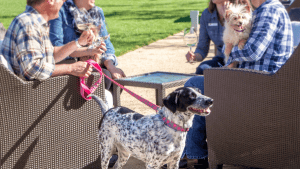We’ve re-arranged our site to make it more mobile-friendly. The page you’re looking for may have moved. Please do a search, or check out the below recent stories.
sdfsadfs
asdfsdfsdf Tahoe City and its surrounding areas are a paradise for dog owners who love to explore the great outdoors …
Keeping Tails Wagging: Caring, connecting, and celebrating with Napa Humane
Napa Humane has quietly become one of the most vital lifelines for animals and their people in Napa Valley. Through …
California glampsites your dog will dig
Summer is peak glamping season in the Golden State. If your pup loves the great outdoors but you prefer your …
Desert days & mountain stays
From alpine meadows to starry desert skies, glamping in California’s mountains and deserts is a dream for adventurous pet parents …
Vineyard views & wine-loving woofs
Prefer a wine glass to a canteen? Glamping in California’s wine regions combines the best of both worlds—nature lodging with …
Terrific tree-hugging retreats
Imagine waking up beneath towering trees and sipping coffee on your deck with your pup wagging its tail by your …
Glamping by the sea
California’s dog-friendly coastal glamping sites let you and your pup enjoy salty sea breezes, beach walks, and stunning sunsets with …
Dog-friendly Mendocino County is magic in summer
Mesmerizing landscapes. Recreational richness. Dog-friendly resorts and small businesses. Magical Mendocino County has it all, and that’s why it’s such …
Join the pack, subscribe to our newsletter!
DogTrekker is your go-to guide for dog-friendly California travel. Our no-spam newsletter sniffs out hidden hikes, off-leash beaches, pup-friendly stays, and exclusive deals. Join us and never miss a tail-wagging adventure!









